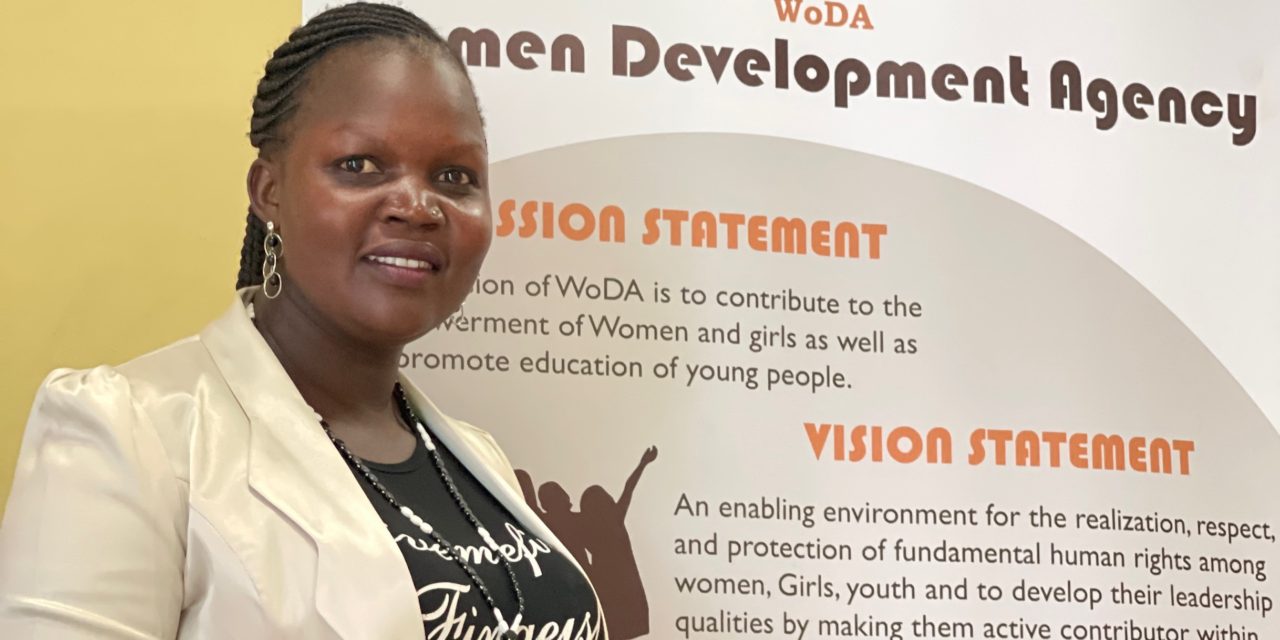
Rising above the silent epidemic

“It’s enough for me. I can’t take it anymore. It felt like slavery. I felt the only solution was to commit suicide,” recalls Susan Pascal, a woman in her late 30s forced into early marriage at 17.
Now an executive director with the women’s Advancement Organization (WAO) in Juba, South Sudan, an emotional Susan describes the pain she went through after being sent into an early marriage to a 50-year-old man.
“I woke up at 2 AM every day and during the day I had to endure working with a baby on my back, cooking for 50 people daily as a 17-year-old,” says Susan.
Susan later chose to go back to school to pursue her dreams. She has always wanted to become medical personnel. With the help of her mother, Susan joined a community school under the Adult Literacy Program (ALP).
In South Sudan, early marriage is like a silent Epidemic that is eating up the country’s young generation. The practice affects the psychological well-being and personal and social growth of the child.
When overburdened with responsibilities and being kept at home to carry out household chores there is an increased risk of depression and physical harm in such children, especially during delivery.
Grace Kiden, a mother of three was also forced into early marriage by her aunt at the age of 14 after her parents were killed in the 2013 South Sudan civil conflict in Yei, in South Sudan’s Central Equatoria state.
She isn’t as fortunate as Susan is to get back to school, rather, she had to put up with an abusive husband who always stayed drunk.
The greatest challenge of a young girl forced into early marriage is during pregnancy and at the time of giving birth, Kiden believes.
“Before delivery when I go for antenatal, people start gossiping about my age and how hard it will be for me to give birth making me have a lot of fears as to whether I will survive or die during delivery,” Kiden told The Insider.
Sarah David who owns a coffee shop in Gudele, a suburb in Juba, was married at the age of 16. She agrees with Kiden regarding the treatment young girls face at the hands of their husbands’ families as they are harassed by people who take care of them.
Girls in developing countries, especially South Sudan, continue to face barriers that keep them from achieving their full potential.
Wars, Poverty, cultures, and illiteracy have been cited as major causes of early child marriage.
Nadia Sarah, a women activist working with Crown the Woman, a woman-led organization points out poverty in the context of South Sudan as the standout reason for early child marriage.
Parents tend to send their girls out to marriage instead of sending them to school to get money to survive and send other children mainly boys to school so they tend to send their daughters for marriage, she says.
“Also, culture and lack of proper awareness have contributed to the practice that makes a man (fathers) say you are a woman and I am sending you to your husband’s home whether you like it or not, without considering how this affects girls, women, and their daughters,” Sarah told the Insider.
Bakhita Ahieng, an early child marriage survivor and now the executive director for Women Development organization (WADA), an organization contributing to women empowerment and promoting education for young people, agrees with the fact that culture plays a bigger role in early child marriage leading to domestic violence.
Her marriage failed, leading to divorce. Even though she has a divorce certificate and is remarried with two children, her previous husband and all the relatives have engaged her in court battles since 2010 claiming remarrying is an act of adultery and they do not care how many divorce certificates Ahieng poses.
“In our culture, it is the man or the parents to determine the marriage of their girls, if the daughter wants to leave the marriage, the parents will say you either die or stay there,” says Ahieng.
According to an October 5, 2020 report on child marriage by the United Nations Children Emergency Fund (UNICEF), 52 percent of girls are married before they turn 18, depriving them of their basic rights and for some even their lives.
Godfrey Victor Bulla, a lawyer with the judiciary of South Sudan says, “the country’s problem is the will to implement the laws.”
Bulla urges the police to push for the implementation of the existing laws and to set up family laws. But the deputy Police spokesperson, Brig. Gen. James Dak Karlo says the country’s laws and Covid-19 hinder their progress in pinning down perpetrators.
The sexual gender violence bill has been sent to parliament with a specific focus on how the laws can be separated while also, planning to have safe home centers where counseling will be provided for survivors of gender-based violence and defilement.
According to the convention on the rights of the child, article 36, “Children should be protected from any activities that could harm their development.”
But until authorities and relevant bodies step up their efforts to reduce cases of early child marriage and address the conflict of the laws, people like Bakhita will continue to suffer which can lead to suicidal thoughts.
“We are facing the conflict of laws between the customary and the legal provisions like the bill of rights and many others in helping us pin down perpetrators,” Karlo said.






















Recent Comments